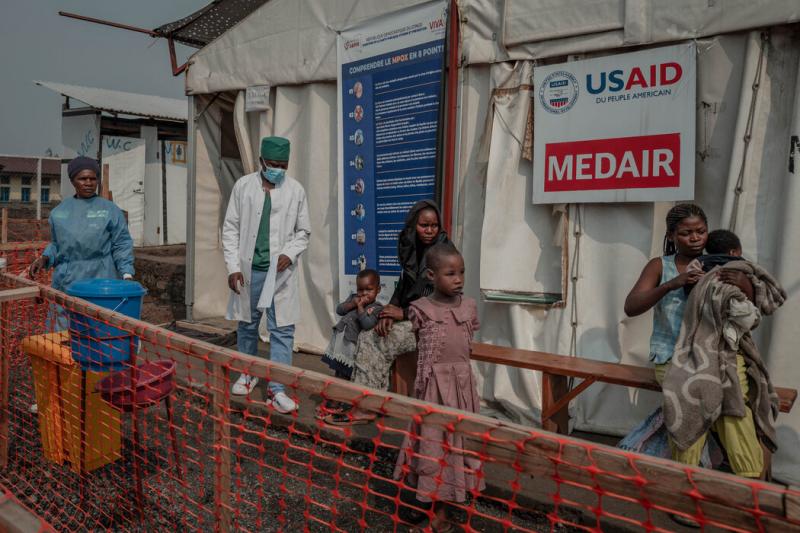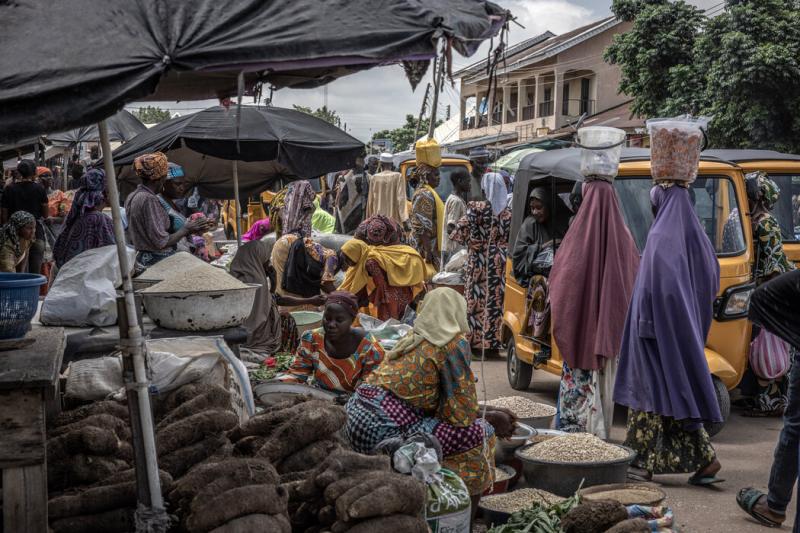
At the beginning of this summer, the new tax increase policy triggered a weeks of fatal riots in Kenya. Subsequently, President William Luto announced that it would change the policy.He gave up the financial law he proposed, and then reorganized the cabinet.
Last week, the government's government changed its attitude again.The newly appointed Finance Minister announced that it will re -introduce some previously abandoned tax increase measures.
The Russian government is desperately trying to increase income to repay billions of dollars in public debt to avoid loan default, even if key public assistance and services are being cut.
African governments are facing the same dilemma.
As of the end of last year, the total foreign debt in the African continent had exceeded 1.1 trillion US dollars.According to the African Development Bank Group, more than 20 countries have excessive debt or face high debt risk.About 900 million people live in countries with higher interest expenses than medical care or educational expenditures.
In developing countries, huge debt has always been a common problem, but the current crisis is considered the worst so far, because the amount of debt is huge, and the number and type of foreign creditors have increased significantly.
In Africa, which is full of potential and dangerous, debt has almost covered everything.

In this way, the youngest and fastest -growing investment funds for employment opportunities for this planet will decrease; funds used to cope with potential epidemic diseases such as new crowns or monkeys will be reduced; people eat, housing and sufferingEducation funds will decrease; funds that should be reduced by the destructive impact of climate change will also be reduced. Climate change may make large land unimpractive and force people to migrate.
A new report from the Paris Institute of Economics to promote the development laboratory and Columbia University policy dialogue initiative warned that if no measures are taken to help countries meet the financial crisis, "a wave of damaging the stable debt default will eventually seriously damage the green greenThe transformation process brings a catastrophic impact on the entire world. "
At the same time, economic stagnation, coupled with poor government corruption and poor management, has made many African countries more likely to have brutal war, military coup and anti -government riots.
Nigeria, with a foreign debt of up to $ 40 billion, has continuously rising inflation and large -scale famine that has triggered a series of violent anti -government protests this month.Among the 220 million people in the country, 40%of the 220 million people live in extreme poverty.However, more than one -third of the government's income is used to pay interest on public debt.

Uganda owed $ 12 billion in foreign debt. In July, a local demonstration broke out in the local area.In Kenya with a total foreign debt of up to $ 35 billion, some protesters said that after the latest tax increase news came out, they were ready to march again.
In many African countries, the per capita income of the past ten years has increased by zero.The debt crisis has led to the depreciation of many currencies and further weakening the purchasing power.
A series of economic impacts caused by the popularity of the new crown virus and the invasion of Ukraine in Russia have exacerbated debt crisis.Food and energy prices have soared, while the money in government vault is decreasing.The central bank of rich countries has risen rapidly by increasing interest rates against inflation.
Some of these projects -such as the railway between Kenya Nairobi and Monbara -has become a display of corruption and mistakes.Many such large infrastructure projects will never generate enough income to offset costs.
The number of private bond holders and creditors has increased significantly, which has further complicated the efforts to resolve the debt crisis.Jamad Gaug, an economist at the Massachusetts State University of Massachusetts, said that in the 2010s, the International Monetary Fund and the World Bank encouraged poverty and middle -income countries to accept Wall Street and seek overseas private loans.At that time, interest rates were extremely low, and investors were looking for higher income projects. Developed officials hope that countries can use a new huge source of funds.
As a result, there are too many government loans that seek to obtain political support or financing for the development of financing, and the creditors who seek income are too much loan.
When the interest rate rises suddenly, countries are forced to get new loans at high cost to repay their previous borrowed money.
Investors can also apply high -cost loan clauses to countries that are in trouble, sometimes on the edge of breach of contract, such as higher interest rates, which is the so -called risk premium.The Kenyan government paid more than 10%of interest to repay US $ 2 billion international bonds in June.
Due to the collapse of output, depletion of employment, inflation, and poverty, countries with liabilities that have exceeded their ability will eventually experience serious economic and social pain.The Chief Economist of the World Bank, Yingdmite Gil, said that the systemic problem is that it also made a wrong decision and issued too much credit lending institutions.
"There is a reason for you to get a risk premium," Gil said when talking about a loan agency.He also said that if they do not digest losses, more reckless loans will be issued."This is a main weakness of the operation of the system."
The backlog of debt makes countries unable to make its economic stability and be able to repay loans.
The funds originally used for economic development were finally drawn: emergency loans provided by the International Monetary Fund and the World Bank and other international institutions were used to repay foreign private creditors.
In Kenya, the Central Bank announced in June that private creditors will receive $ 500 million from a loan of the World Bank.
As summarized by the report of the development of the financing laboratory, "the funds provided by the current loan of the international community to develop countries will eventually 'leak' to repay other creditors."


